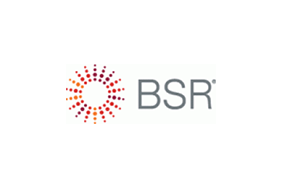EICC and BSR's Carbon Reporting System Promotes GHG Emissions Management in the Electronics Industry
Published 07-01-10
Submitted by BSR
The Electronics Industry Citizenship Coalition (EICC) and BSR have released "A Practical Approach to Greening the Electronics Supply Chain," a report that reflects on the EICC's efforts to increase transparency and focus on emissions reduction with respect to greenhouse gases (GHG) in the electronics industry.
The electronics industry is estimated to contribute roughly two percent of global GHG emissions each year, and the industry’s emissions are projected to double in the next 10 years. Such growth cannot be ignored. Rising GHG emissions and increasing energy demand-which is the primary cause of emissions-poses risks and opportunities to both the environment and business’ bottom line.
The EICC and BSR recognize the importance of leveraging supply chains to address the challenge of reducing their carbon footprint. The EICC began working with BSR in 2008 to develop the Carbon Reporting System-a collaborative approach to promoting GHG-emissions management throughout the electronics industry supply chain. The recent report reflects on the EICC's motivations for creating the system, the key elements of the approach, and the results of piloting the system in 2009.
"With pending GHG emissions regulations in many countries, growing concern among investors and consumers over climate change, and uncertainty around the impact of climate change on resource availability, business cannot afford to ignore the issue," said Betsy Fargo, BSR's Manager, Advisory Services. "To date, however, many companies have focused on their own impacts, and they have not worked with others to drive systemic change."
As discussed in the report, the 12 EICC companies that participated in the pilot queried 280 suppliers to disclose their 2008 GHG emissions, energy consumption, and carbon-management practices. With a 26 percent response rate from suppliers, several key findings emerged, including:
- Companies in the pilot are varied in the length of time they have been measuring their emissions. Responding companies have been measuring their annual GHG emissions for an average of 3.4 years, and for a median of two years. This includes 21 companies who claimed to not previously have measured their emissions, and 19 companies who have measured their emissions for over five years.
- There are large gaps in companies’ GHG emissions accounting ("carbon footprint"), illustrating the need for training and capability building around GHG accounting. Of the 73 companies who returned questionnaires, 78 percent submitted emissions data, while 22 percent did not provide figures for the Scope 1, 2, or total emissions. Many of the companies in the pilot are managing their emissions by setting emissions targets and energy-efficiency goals (36 companies).
- Suppliers who reported their data benefitted from the EICC and BSR's coordinated approach, having to report their GHG emissions data only once to satisfy requests from multiple EICC companies.
"The pilot was a critical first step toward a coordinated, proactive approach to managing GHG emissions in the electronics industry," said EICC Chairman John Gabriel. "We learned from the pilot and look forward to working throughout the supply chain to increase companies' capabilities to measure, report, and reduce GHG emissions."
The EICC and BSR plan to work together on a broader roll-out of the Carbon Reporting System in 2010, increasing EICC member companies’ participation and the number of suppliers queried.
About BSR
A leader in corporate responsibility since 1992, BSR works with its global network of more than 250 member companies to develop sustainable business strategies and solutions through consulting, research, and cross-sector collaboration. With offices in Asia, Europe, and North America, BSR uses its expertise in the environment, human rights, economic development, and governance and accountability to guide global companies toward creating a just and sustainable world. Visit www.bsr.org for more information.
About the EICC
The EICC was established in 2004 to improve social, economic, and environmental conditions in the global electronics supply chain through the use of a standardized code of conduct. The EICC was incorporated in 2007 as an association to ensure greater awareness of the Code, and to expand its adoption across the industry. Through the application of shared standards, the EICC believes in better social, economic, and environmental outcomes for all involved in the electronics supply chain. The EICC includes over 45 global electronics companies. For more information or to view the EICC Code of Conduct, visit www.eicc.info.

BSR
BSR
Since 1992, Business for Social Responsibility (BSR) has been providing socially responsible business solutions to many of the world's leading corporations. Headquartered in San Francisco, with offices in Europe and China, BSR is a nonprofit business association that serves its 250 member companies and other Global 1000 enterprises. Through advisory services, convenings and research, BSR works with corporations and concerned stakeholders of all types to create a more just and sustainable global economy. For more information, visit www.bsr.org.
More from BSR

